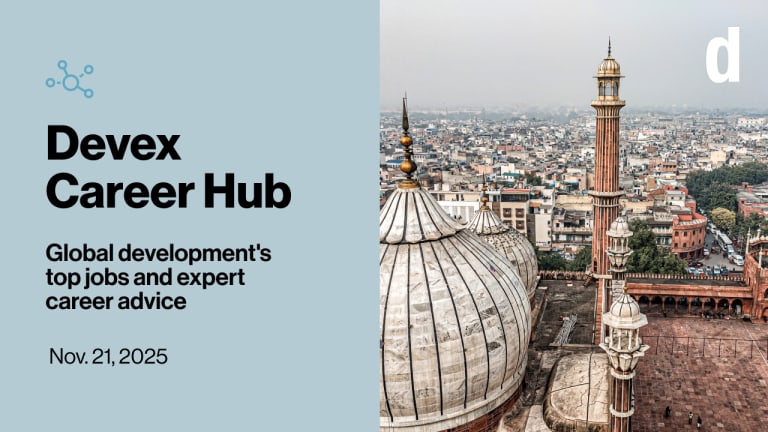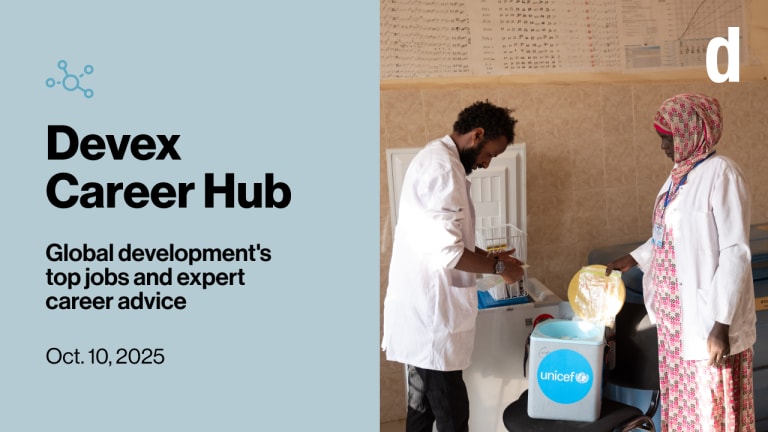
Many global development organizations are still falling short when it comes to closing the gender pay gap. And barriers still exist for women and minorities looking to land leadership roles in the sector.
But 2019 brought some good news for diversity and inclusion. The U.S. Agency for International Development finally updated its biodata form — a move that was welcomed by implementing partners and is expected to help tackle pay equity.
Other organizations are making progress by taking a more holistic approach to diversity and inclusion — rethinking perceptions of leadership, shaking up their hiring processes, and engaging employees across the board. There is also an increasing awareness of how donor-driven demand for graduate-level qualifications is creating biases and socioeconomic barriers in the sector.
Catch up on Devex’s top advice from 2019 on diversity and inclusion in the workplace.
1. A holistic approach to closing the gender pay gap
Palladium came out on top of an annual report from the U.K. Department for International Development on closing the gender pay gap, which highlighted that many development organizations are struggling to do the same. Rosanna Duncan, chief diversity officer at Palladium, shares insights on what the organization has been doing to close the gap.
2. Q&A: Employee engagement is key to progress on diversity and inclusion
Two months into his new role as corporate chief of diversity and inclusion at Chemonics, Albert E. Smith Junior discusses the importance of self-reflection, employee engagement, and a holistic approach to diversity and inclusion. Smith also shares his thoughts on what donors can be doing to lead change in the sector.
3. Podcast: How employers can help women progress in their careers
Devex talks to Sylvia Megret, COO at ACDI/VOCA, about how employers can support women to develop the leadership skills of the future. Megret says it’s up to organizations to create an organizational culture that supports women and recognizes different styles of leadership.
4. Recognizing quiet leadership potential
Girish Menon, chief executive at ActionAid UK, highlights the value that quiet leadership can bring to an organization and shares insights on how to spot this type of leadership potential — from recognizing key behaviors to changing the interview sequence.
5. How important is a master's degree to your global dev career?
Development donors are driving the demand for graduate-level qualifications and this, along with the high cost of studying, is creating biases across the sector. But some employers are now accepting on-the-job experience in place of an advanced degree, and new players to the development scene are shaking up the hiring structure.
6. How this organization supported staff development through minimasters
Find out how one organization put a number of its staff members through a minimasters in global supply chain management and designed a program that was affordable, accessible, applicable to middle- and lower-income country contexts, and accredited.
7. LGBT staff safety on humanitarian deployments is everyone's responsibility
LGBT humanitarian staff can encounter hostility, harassment, and targeted violence when deployed overseas. Experts share advice for how organizations and individuals can know and appreciate the risks that their LGBT colleagues face and avoid putting them in further danger.








